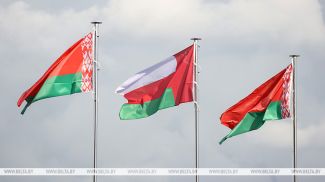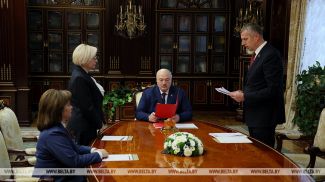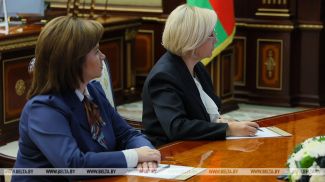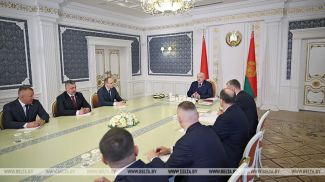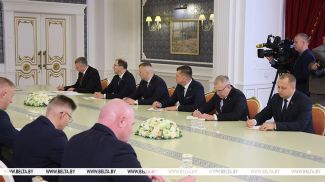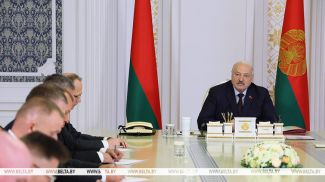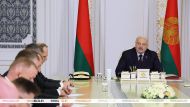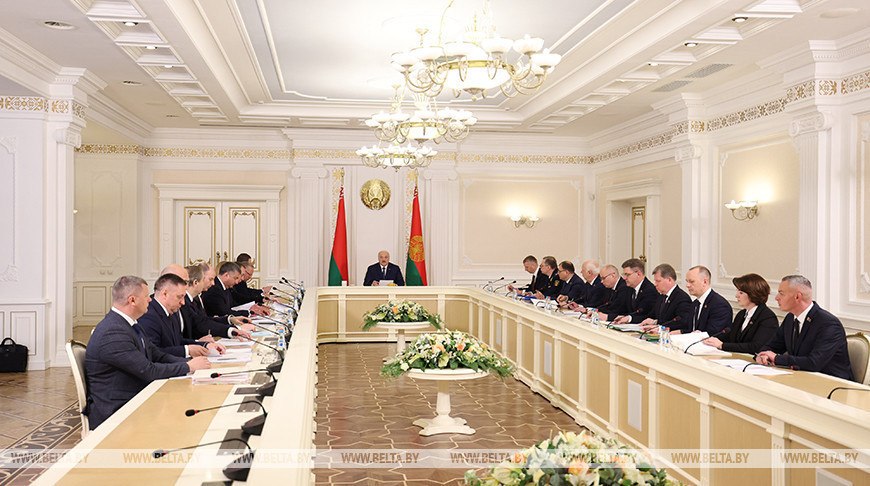
MINSK, 29 May (BelTA) - Rental housing should be one of the priority issues of the ongoing five-year period, Belarusian President Aleksandr Lukashenko said as he met with the Council of Ministers on 29 May, BelTA has learned.
“Before we start our conversation, I would like to remind you once again of the basic reason behind the event. This is a traditional meeting, where we consider the most pressing issues of the country. That is why we hold such meetings at the level of the president,” the Belarusian leader said. “Decisions on these issues are made by the president in the form of a decree or order, and are elaborated by specialists, members of the government.”
The agenda included a number of issues which required balanced decisions, the president noted. Rental housing was the first to consider.
“This issue should become one of the priorities for the ongoing five-year period,” Aleksandr Lukashenko emphasized. “Next year we will complete a draft social and economic development program, which will be considered at the Belarusian People's Congress. Before the meeting we need to regulate all the provisions: who can qualify for rental housing, where it can be done, how quickly and on what terms. There should be also an opportunity to acquire rental housing, including through an installment option."
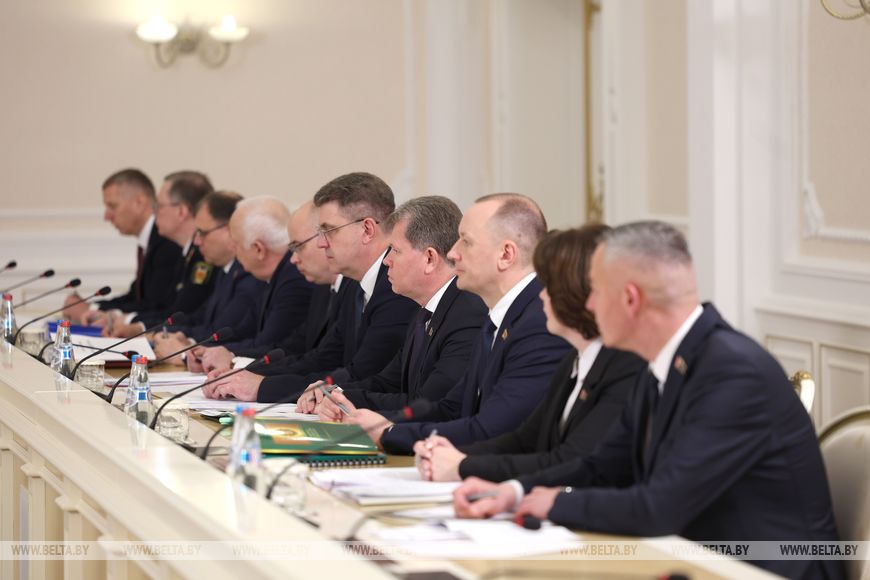
According to the head of state, this is of special importance for small towns (up to 20,000 residents) and will be a strong incentive for people.
“The principle is simple: after working for a certain number of years, let's say 10 or 15 years of continuous service at an enterprise that provides rental housing, the person gets the right to acquire this housing. This is a matter that has been the subject of much talk lately. People ask questions,” the president said. “The same is true about the acquisition of rental housing in rural areas, which is already in poor condition and does not meet sanitary and technical requirements. Strangely enough, but such houses are not taken proper care today. On the one hand, there is an organization which has this housing in the books. It is the organization that should carry out major repairs once every 30 years, according to our legislation. On the other hand, there are tenants who live there but do not hurry to invest in current repairs because the dwelling is not their property. This is how such housing is gradually falling into disrepair.”
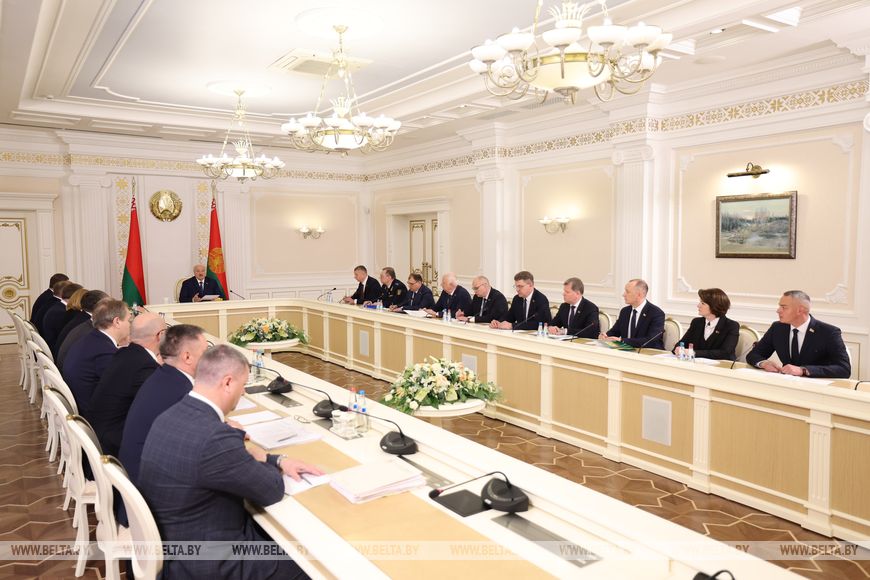
There are about 3,000-4,000 such houses across the country. Every year more than Br10 million is needed to renovate them. “There is a demand for such housing: if the state sells this housing, people will renovate it. Clear and understandable conditions are needed for this. We must define them for the people,” Aleksandr Lukashenko said.
“There is also an opinion that a one-time review should be conducted of such housing (for example, before 1 July) and that only such housing should be put for sales. What are such restrictions for? What good will they do? What will you be doing with the housing which continues to deteriorate and in a year or two will require absolutely different procedures?” the head of state outlined a number of questions.
He emphasized that solutions should be systemic and equally acceptable for the people and the economy of the region, especially given staff retention efforts.

“Before we start our conversation, I would like to remind you once again of the basic reason behind the event. This is a traditional meeting, where we consider the most pressing issues of the country. That is why we hold such meetings at the level of the president,” the Belarusian leader said. “Decisions on these issues are made by the president in the form of a decree or order, and are elaborated by specialists, members of the government.”
The agenda included a number of issues which required balanced decisions, the president noted. Rental housing was the first to consider.
“This issue should become one of the priorities for the ongoing five-year period,” Aleksandr Lukashenko emphasized. “Next year we will complete a draft social and economic development program, which will be considered at the Belarusian People's Congress. Before the meeting we need to regulate all the provisions: who can qualify for rental housing, where it can be done, how quickly and on what terms. There should be also an opportunity to acquire rental housing, including through an installment option."

According to the head of state, this is of special importance for small towns (up to 20,000 residents) and will be a strong incentive for people.
“The principle is simple: after working for a certain number of years, let's say 10 or 15 years of continuous service at an enterprise that provides rental housing, the person gets the right to acquire this housing. This is a matter that has been the subject of much talk lately. People ask questions,” the president said. “The same is true about the acquisition of rental housing in rural areas, which is already in poor condition and does not meet sanitary and technical requirements. Strangely enough, but such houses are not taken proper care today. On the one hand, there is an organization which has this housing in the books. It is the organization that should carry out major repairs once every 30 years, according to our legislation. On the other hand, there are tenants who live there but do not hurry to invest in current repairs because the dwelling is not their property. This is how such housing is gradually falling into disrepair.”

There are about 3,000-4,000 such houses across the country. Every year more than Br10 million is needed to renovate them. “There is a demand for such housing: if the state sells this housing, people will renovate it. Clear and understandable conditions are needed for this. We must define them for the people,” Aleksandr Lukashenko said.
“There is also an opinion that a one-time review should be conducted of such housing (for example, before 1 July) and that only such housing should be put for sales. What are such restrictions for? What good will they do? What will you be doing with the housing which continues to deteriorate and in a year or two will require absolutely different procedures?” the head of state outlined a number of questions.
He emphasized that solutions should be systemic and equally acceptable for the people and the economy of the region, especially given staff retention efforts.
“Maybe it is expedient to donate a house to a young specialist in some backwater district, as we say (although there are no such places in Belarus anymore). It can be given away for free. Perhaps someone has an alternative opinion, then let's discuss it. I think we can discuss it. One more thing. You suggest separating these issues into two decrees. I am not sure about it. There are experts here today. Perhaps it is more reasonable to make one comprehensive document, which will make it easier for a person to make a decision,” the Belarusian leader added.





